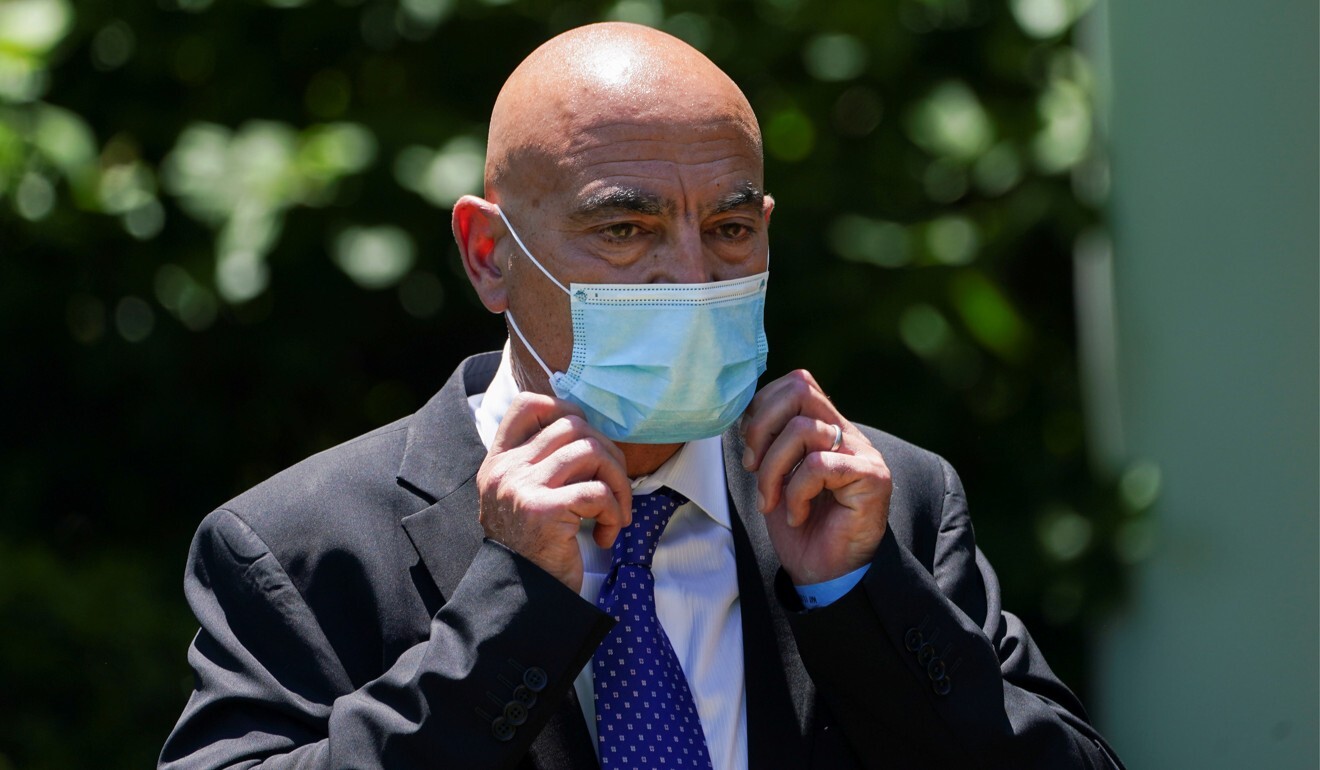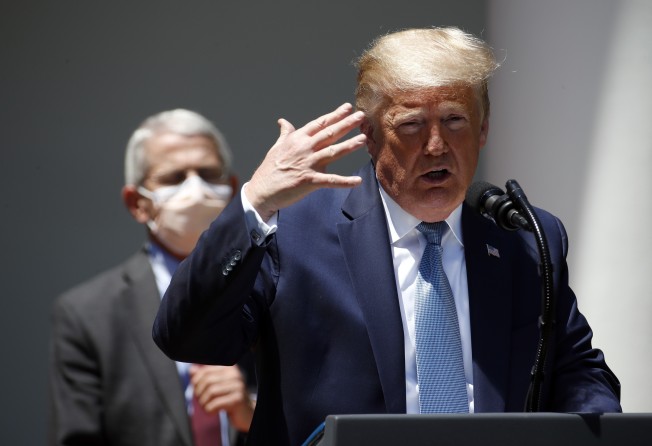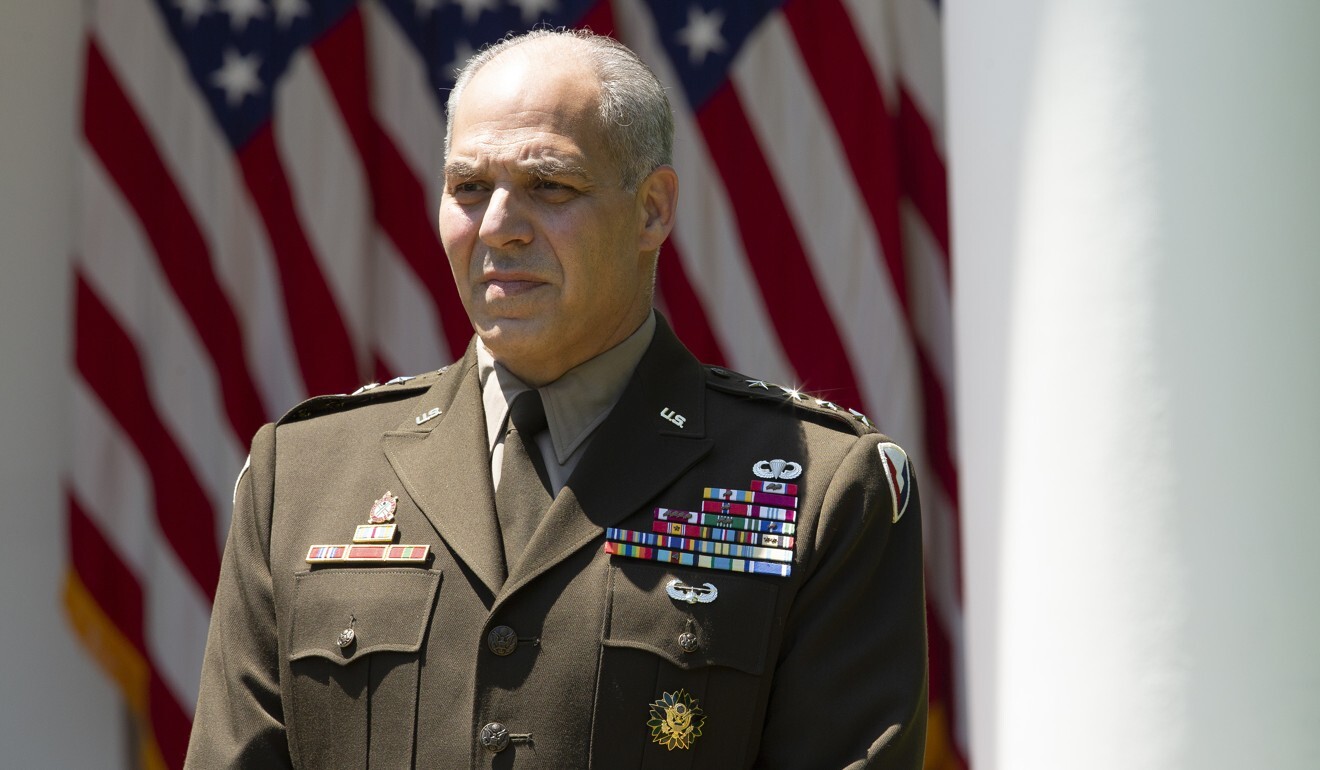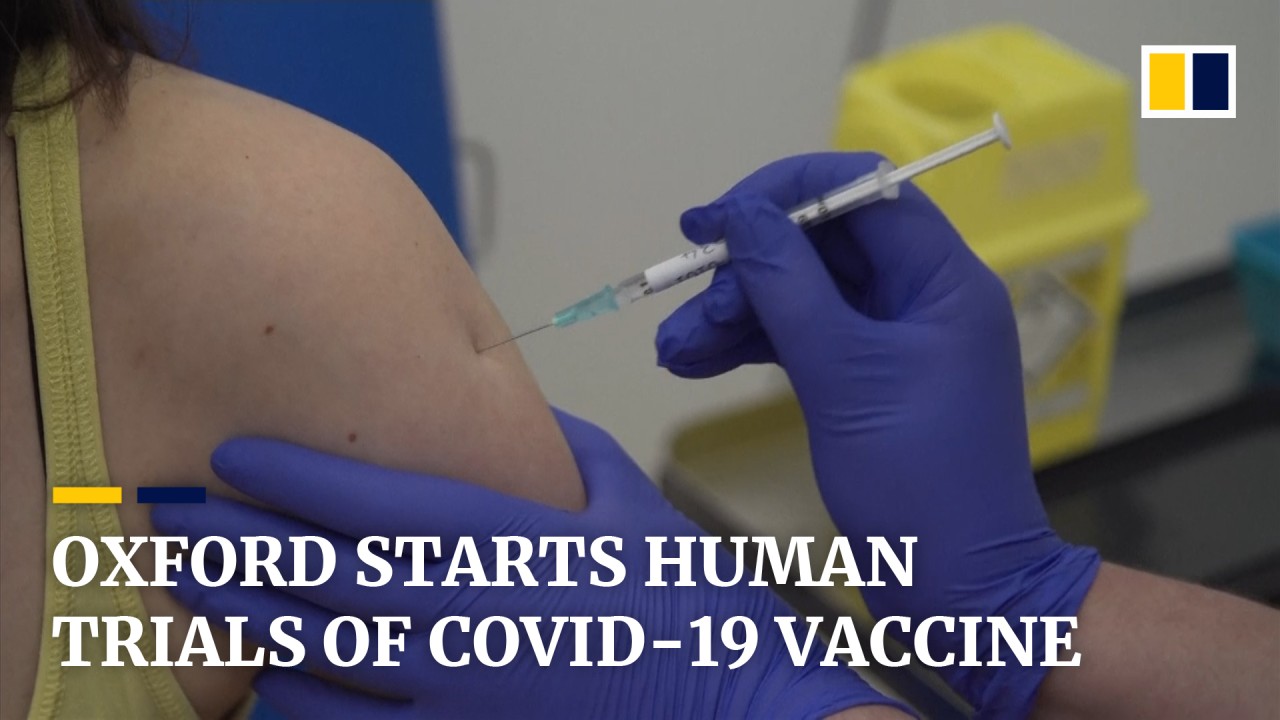
Coronavirus: US vaccine tsar expresses optimism for ‘a few hundred million doses’ by end of the year
- Moncef Slaoui, a former pharmaceutical executive, has been chosen to lead the US development programme
- US government is racing to arrest a sharp spike in unemployment brought about by the pandemic

The former pharmaceutical executive chosen this week by US President Donald Trump to speed up the development of a coronavirus vaccine said on Friday that he expected to accomplish the goal by the end of this year.
“I have very recently seen early data from a clinical trial with a coronavirus vaccine, and these data made me feel even more confident that we will be able to deliver a few hundred million doses of vaccine by the end of 2020,” Moncef Slaoui, who is leading the US development programme, said at a White House press briefing. “We will do the best we can, the best we can, to do that.”
Trump is under pressure to speed up the development of an effective vaccine against Sars-CoV-2, the coronavirus that causes Covid-19, as measures designed to slow the illness’ spread have thrown tens of millions of Americans out of work. More than 35 million people have filed for unemployment benefits since Trump declared a national emergency in March, as confirmed Covid-19 cases and deaths began to escalate in the US.
The mitigation measures most states put in place to slow the contagion’s spread included the closure of non-essential businesses. The resulting losses dragged US retail sales down by a record 16.4 per cent in April, after an 8.4 per cent drop in March.

Health experts including Dr Anthony Fauci, the US’ leading infectious disease expert, have said businesses cannot expect to operate at pre-pandemic levels until a vaccine is widely available.
Asked in a Senate hearing on Tuesday whether an effective vaccine within a year or two was a “long shot”, Fauci said: “Definitely not.”
“It is more likely than not, that we will, because … the overwhelming majority of people recover from this virus,” he said. “The very fact that the body is capable of spontaneously clearing the virus tells me that at least from a conceptual standpoint, we can stimulate the body with a vaccine that would induce a similar response.”
Moderna, which is based in Cambridge, Massachusetts, received regulatory approval on May 6 to start phase-two trials on its mRNA 1273 vaccine candidate, which is being developed in collaboration with the US government to speed the process.
The US government’s Biomedical Advanced Research and Development Authority (Barda), a sub-unit of the Department of Health and Human Services (HHS), provided US$483 million to fund development for Moderna’s vaccine candidate and plans to support the late-stage clinical development and manufacturing.
The US Food and Drug Administration (FDA) announced on Tuesday that it has “fast-tracked” the development of mRNA-1273.
“Fast Track designation underscores the urgent need for a vaccine against the novel coronavirus,” Moderna’s chief medical officer said in an announcement. “As we await the full set of clinical data from the NIAID-led Phase 1 study, we are actively preparing for our Phase 2 and Phase 3 clinical studies to continue learning about the potential of mRNA-1273 to protect against SARS-CoV-2.”
Slaoui did not specify on Friday which vaccine candidate he was referring to.
The first clinical stage of vaccine development trials involves a small number of people to prove the product is safe, the second phase requires hundreds of subjects to observe safety and efficacy, and the third phase involves many more volunteers – usually more than 1,000 – to prove the vaccine candidate’s protective capacity under natural conditions in a range of locations.
Chinese biopharma firm CanSino Biologics last month began recruiting 500 volunteers for the second phase of a clinical trial of the country’s most advanced vaccine candidate.
The Tianjin-based company announced on Thursday night that it was working with the Institute of Biotechnology at the Academy of Military Medical Sciences to begin the new phase after preliminary data from the first stage indicated that it was safe to proceed.
Another front-running vaccine candidate is expected to begin mass production in India within months. The Serum Institute of India, the world’s largest maker of vaccines by volume, said on April 29 that it plans this year to produce up to 60 million doses of a potential vaccine developed by the University of Oxford, which is under clinical trial in Britain.
Along with Barda funding, Trump’s efforts to deliver a vaccine this year also relies on the US Defence Department, which is preparing to deliver syringes, vials and other equipment needed to administer the doses when cleared by the FDA. The logistics effort includes a “cold chain” to ensure that the vaccine stays at the needed temperature from the manufacturing plants to medical facilities.
At the White House on Friday, Trump introduced Gustave Perna, commanding general of US Army Materiel Command, whom the president put in charge of the eventual distribution.
Defence Secretary Mark Esper, appearing with Trump, Slaoui and Perna, pledged “the full weight” of his department to manage the logistics.

Manufacturing of any vaccine that comes through the development pipeline successfully will also be a challenge.
“I do not know what preliminary data Dr Slaoui has seen, but the only way 300 million doses of a vaccine candidate could be made by the end of the year would be to have a production facility that can produce that many doses,” said Dr Barry Bloom, the Joan L. and Julius H. Jacobson Research Professor of Public Health at the Harvard T.H. Chan School of Public Health.
“The largest number of proposed vaccine candidates are in small biotech companies that do not have the capacity to produce 300 million doses of anything,” Bloom said.
In the case of Moderna’s mRNA 1273, Barda has earmarked funds for the scaling up of production at that company’s facilities and at Lonza Ltd, a Basel-based company that is collaborating with Moderna.
Additional reporting by Charley Lanyon
